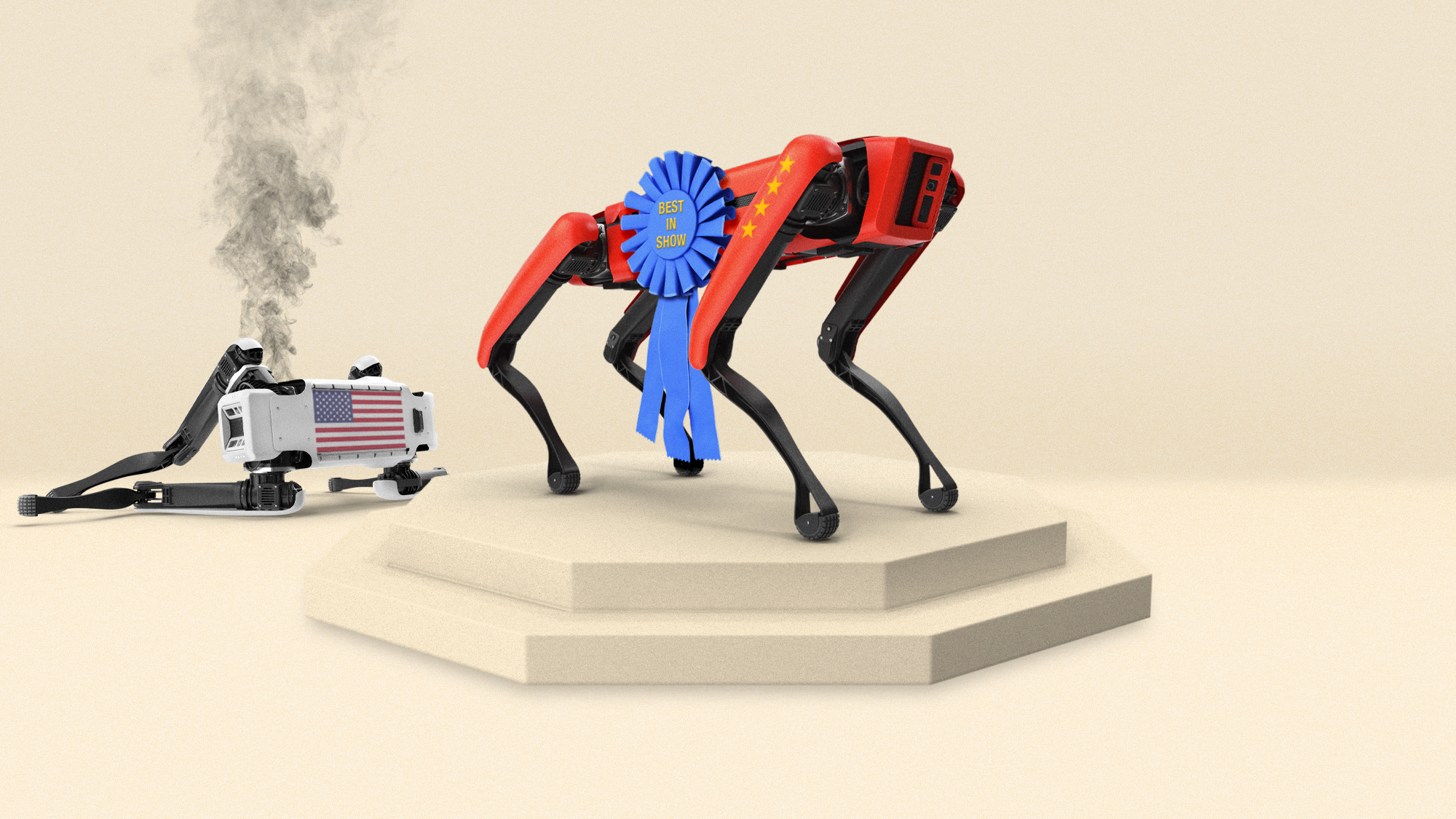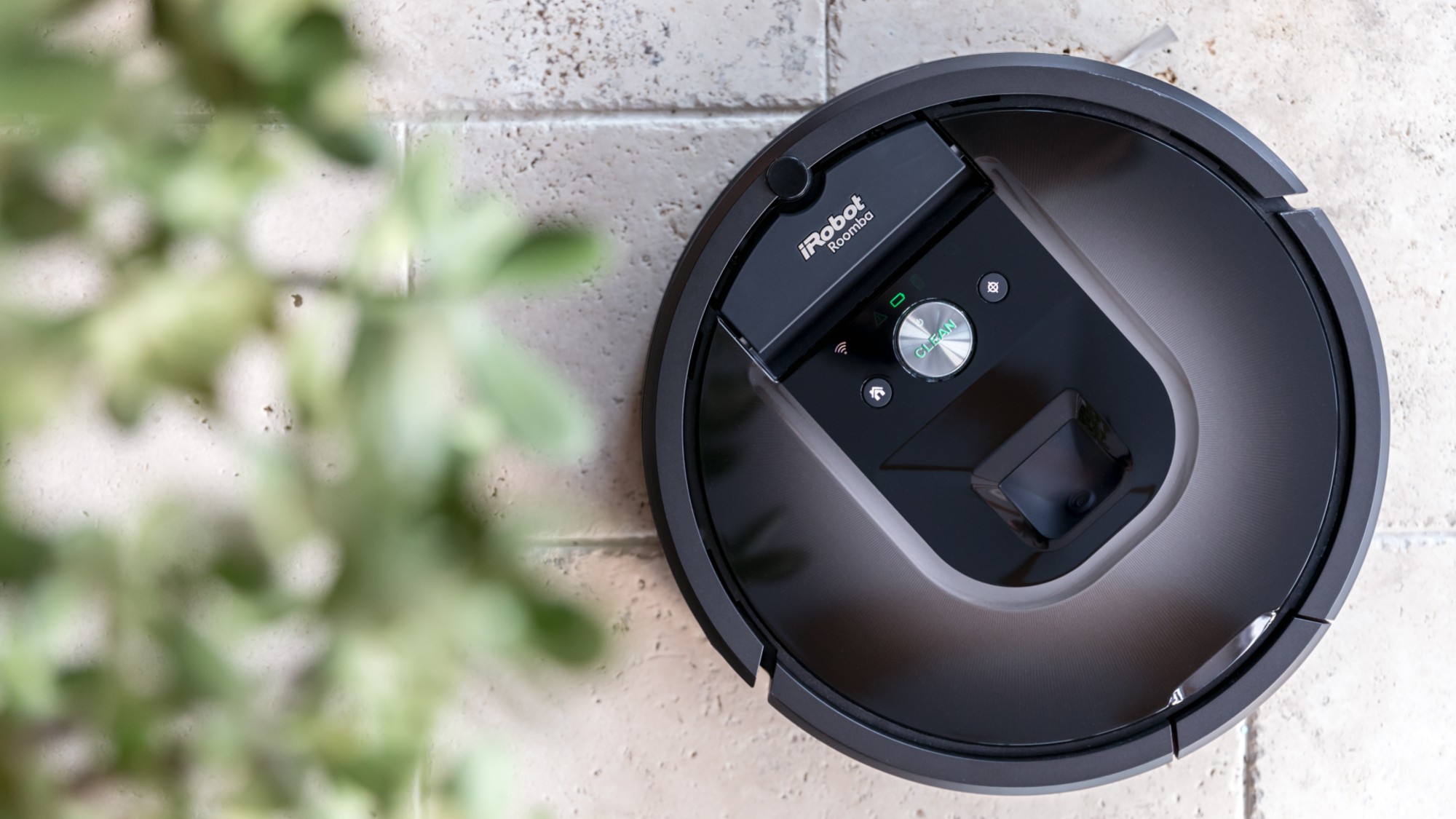Is China winning the AI race?
Or is it playing a different game than the US?


A free daily email with the biggest news stories of the day – and the best features from TheWeek.com
You are now subscribed
Your newsletter sign-up was successful
It is the space race of the 21st century: A competition between the United States and China to develop the most powerful artificial intelligence tools is at a critical point. Some crucial signs point toward America faltering in that race.
The "new tech cold war" between the U.S. and China is now entering a "more dangerous" phase, said Marina Yue Zhang at The Diplomat. The Senate recently held a hearing focused on "concerns that the United States' lead over China was eroding fast," while President Donald Trump has been signing AI chip deals with "key regional allies" in the Middle East. Those developments signal American concern that China is "increasingly setting the pace and shaping the rules" in the new AI-dominated world. Beijing, after all, accounts "for over 70% of global AI patent filings."
What did the commentators say?
China is running a "different kind of strategic race," said The Economist. While American firms focus on developing the most advanced AI models, Chinese developers "emphasize practically applying AI" for consumers and in factories, said former tech executive Zhang Yaqin. Americans like OpenAI's Sam Altman talk about AI surpassing humans' cognitive abilities, but the Chinese government is focused more on solving "concrete problems like economic growth and industrial upgrading," said RAND Corporation's Karson Elmgren.
The Week
Escape your echo chamber. Get the facts behind the news, plus analysis from multiple perspectives.

Sign up for The Week's Free Newsletters
From our morning news briefing to a weekly Good News Newsletter, get the best of The Week delivered directly to your inbox.
From our morning news briefing to a weekly Good News Newsletter, get the best of The Week delivered directly to your inbox.
While American companies develop proprietary AI models and charge for access, Chinese developers have "expanded their influence" by creating and distributing open-source programs like DeepSeek, said Eric Schmidt and Selina Xu at The New York Times. The result is that America is "no longer in the era when China is far behind us." Chinese entrepreneurs excel at finding "creative ways to do more with less," so the U.S. cannot count on tariffs and export controls to maintain its lead. The danger now is that the "China-dominated future is already arriving."
Either America keeps its "economic and early AI advantages" or else it falls behind in a "world dominated by communist China," said Jim VandeHei and Mike Allen at Axios. That is why the government has "scant interest in regulating AI" and why U.S. politicians of both parties are mostly "silent on AI's job threat." Trump is making an "epic gamble" with policies that "nudge" Canada, Greenland and Ukraine to share rare earth minerals — the hard foundation of AI hardware — with the U.S., while at the same time waging a trade war partly designed to limit China's progress on AI. China, though, keeps "racing ahead" in AI-related products like "drones, cars, quantum computing and batteries."
What next?
Beijing earlier this week "blasted" American policymakers for imposing controls on AI chip exports to China, said The Associated Press. Those curbs "seriously violate the consensus" the two countries arrived at in calling a 90-day pause in the trade skirmish, the Commerce Ministry said in a statement. That is a sign that "underlying differences" between Washington and Beijing could still lead to "further turbulence," said the AP.
A free daily email with the biggest news stories of the day – and the best features from TheWeek.com
Joel Mathis is a writer with 30 years of newspaper and online journalism experience. His work also regularly appears in National Geographic and The Kansas City Star. His awards include best online commentary at the Online News Association and (twice) at the City and Regional Magazine Association.
-
 Local elections 2026: where are they and who is expected to win?
Local elections 2026: where are they and who is expected to win?The Explainer Labour is braced for heavy losses and U-turn on postponing some council elections hasn’t helped the party’s prospects
-
 6 of the world’s most accessible destinations
6 of the world’s most accessible destinationsThe Week Recommends Experience all of Berlin, Singapore and Sydney
-
 How the FCC’s ‘equal time’ rule works
How the FCC’s ‘equal time’ rule worksIn the Spotlight The law is at the heart of the Colbert-CBS conflict
-
 Can Europe regain its digital sovereignty?
Can Europe regain its digital sovereignty?Today’s Big Question EU is trying to reduce reliance on US Big Tech and cloud computing in face of hostile Donald Trump, but lack of comparable alternatives remains a worry
-
 Claude Code: Anthropic’s wildly popular AI coding app
Claude Code: Anthropic’s wildly popular AI coding appThe Explainer Engineers and noncoders alike are helping the app go viral
-
 TikTok finalizes deal creating US version
TikTok finalizes deal creating US versionSpeed Read The deal comes after tense back-and-forth negotiations
-
 Will regulators put a stop to Grok’s deepfake porn images of real people?
Will regulators put a stop to Grok’s deepfake porn images of real people?Today’s Big Question Users command AI chatbot to undress pictures of women and children
-
 Most data centers are being built in the wrong climate
Most data centers are being built in the wrong climateThe explainer Data centers require substantial water and energy. But certain locations are more strained than others, mainly due to rising temperatures.
-
 The dark side of how kids are using AI
The dark side of how kids are using AIUnder the Radar Chatbots have become places where children ‘talk about violence, explore romantic or sexual roleplay, and seek advice when no adult is watching’
-
 Why 2025 was a pivotal year for AI
Why 2025 was a pivotal year for AITalking Point The ‘hype’ and ‘hopes’ around artificial intelligence are ‘like nothing the world has seen before’
-
 What is Roomba’s legacy after iRobot bankruptcy?
What is Roomba’s legacy after iRobot bankruptcy?In the Spotlight Tariffs and cheaper rivals have displaced the innovative robot company
